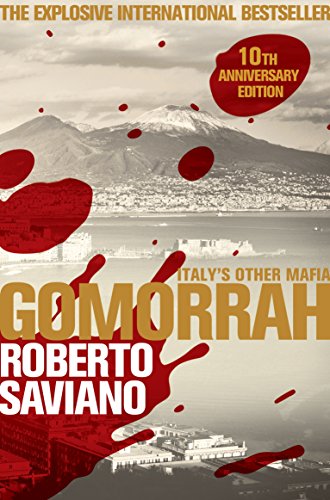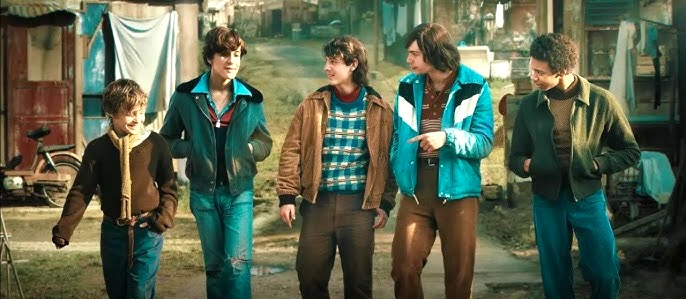Gomorra (Gomorra)

Reading Gomorra is like falling down into a chasm. It is like plunging into the shame of violence and experiencing how the Italian region of Campania stands this violence every day, a reality which seems not to belong to our lives.
As we reach the end of the chasm, as well as the end of the book, another abyss opens up in front of us (quoting the writer â there is always another abyss into the abyssâ) It encloses both our national and the international economy disclosing an enormous well-structured system of the organised crime whose tentacles reach places well beyond the boundaries of our imagination.
The book is not a novel. Instead, it takes the form of a journal-like account of facts - not necessarily in order of time - full of exact details and dates, painstaking descriptions of events resembling sharp Polaroid shots as they roll on in front of our eyes. With so much realism we are able to feel the savagery of thousands of deaths, almost teenagers, stemmed from decades of endless bloody war amongst Camorra families. As a result, this area of Italy by itself has ranked to the top chart of the EU areas with the highest rate of murders in the whole Europe. The book uncovers an intricate anthill and it harshly criticises a philosophy of free trade applied with violence by the organised crime to the international market of drugs and weapons and, more locally, to the real estate market and the raising business of the disposal of toxic industrial waste which has led to the creation of thousands of illegal waste dumps and has polluted a great deal of the region causing irreparable agricultural damages. They are all illegal sources of earnings for the Campania Mafia and many others.
The journal-like style of the book leaves little room to the writer himself who, only rarely, gives away intense and good pages of personal writing and harsh accusation. There is almost an obsessed attention to report the smallest details of a giant mosaic carefully built as an evidence to sentence the whole âSistemaâ of organised crime. This approach, however, leads the writer, I think, to dislike the word Economy, the same Economy which, under different circumstances and in different places, has brought freedom, culture and civil rights. After reading the book nobody can look naively at life and the writer, deprived of his own adolescence, can only be rewarded by the awareness that millions of people now know about it all.
© All right reserved



